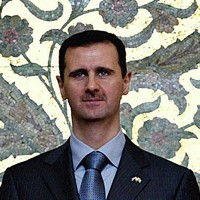
Really cool column by Patti Waldmeir on Asia (despite the weird lack of noun-verb agreement). She is FT's Shanghai bureau chief.
Gist (well captured in title): "China's young workforce warm (sic) to west's work-life balance." [Online version of title cuts "workforce," so agreement works there. Picky me, I know.]
Starts with recollection of asking founder of BYD battery/carmaker what he did in his free time. He scoffed at the notion that such a thing existed, and then lectured her on why China would surpass the West because its people had no such conception.
True for the "rise"-initiating generation, but not true to the kids who follow:
But that was three years ago, and three years is a long time in China. Since then, the younger generation of Chinese workers have (sic) begun to discover the joys of sloth. Leisure - which has had a bad rap on the mainland - is making a comeback.
Why? Overwork, plus increasingly long commutes.
Upshot: according to the head of GM in China, the post-80s generation is increasingly into the the whole life-work balance, creating all manner of HR challenges (none of them new to GM, please).
A headhunter says more and more of his applicants want to work at places that respect the weekend: "These overseas trends are coming into China now."
Of course, if you're trying to build up domestic consumption, you need to encourage this mindset. Plus, in an economy that seeks to prioritize innovation, all work and no play make Jin a dull boy.
But the larger point, just explored in a great Master Narrative proposed by a Wikistrat analyst in our ongoing "China Hits the Great Wall" simulation, is that China may well confound us by getting to the point of wealth and then disappointing all the "realists" out there who imagine the country's only path to be maximizing "national power" (whatever that is). Especially when you factor in the rapid demographic aging, we are more likely to get a China that goes straight to a Nordic socialist-heavy, more admirable lifestyle package than mindlessly replicating the Kaiserian Germany push toward great-power war (crazy talk, I know, for a pol-mil analyst who wants to be taken "seriously" by Washington).
But there you have it: far faster than it appeared in Japan, we see the work-life balance monster rear its relaxed head.
 Monday, March 26, 2012 at 8:50AM
Monday, March 26, 2012 at 8:50AM President Barack Obama has presented himself as the ender of wars. Moreover, where the preceding administration went heavy with its military power, the Obama administration goes laparoscopically light. And as if to culminate a quarter-century trend of U.S. military interventions that have all somehow devolved into manhunts of some sort, America now simply skips the intervention and gets straight to hunting down and killing bad guys. We stand our ground, as it were, on a global scale. Give us the wrong gesture, look, attitude or perceived intention, and wham! One of ours might kill one of yours -- in a heartbeat. You just never know.

 US Military,
US Military,  US foreign policy,
US foreign policy,  terrorism | in
terrorism | in  WPR Column |
WPR Column |  Email Article |
Email Article |  Permalink |
Permalink |  Print Article
Print Article 


































